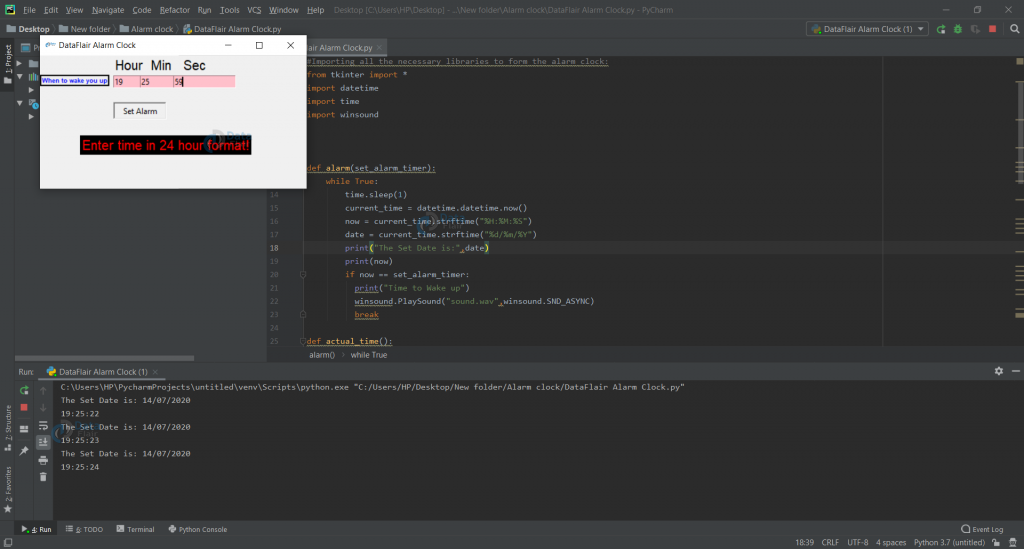

join ( time) The join () waits for threads. start () The start () method starts a thread by calling the run method. run () The run () method is the entry point for a thread. The methods provided by the Thread class are as follows. If a sequence of events takes longer to run than the time available before the In addition to the methods, the threading module has the Thread class that implements threading.

If you need to create a time object containing current time. Using datetime.strftime () method, we then created a string representing current time. Then, we used now () method to get a datetime object containing current date and time. If anĮxception is raised by action, the event will not be attempted in future calls In the above example, we have imported datetime class from the datetime module.
#Python active timer modules code#
The timeit.timeit function takes a code snippet, runs it many times (the default is 1 million passes), and. Scheduler will maintain a consistent state and propagate the exception. The Timeit module attempts to perform something like actual benchmarking on Python code. (if any) and then return the deadline of the next scheduled call in theĮither action or delayfunc can raise an exception.

If blocking is false executes the scheduled events due to expire soonest On until there are no more scheduled events. This method will wait (using the delayfunc()įunction passed to the constructor) for the next event, then execute it and so Queue, this method will raise a ValueError. If event is not an event currently in the Return value is an event which may be used for later cancellation of the eventĬhanged in version 3.3: kwargs parameter was added. We have imported the threading module and created a method thread labeled t. If the variables value is changed in one thread, it is applicable for all threads. Kwargs is a dictionary holding the keyword arguments for action. Threads of a process can share the memory of global variables. A lower number represents a higher priority.Įxecuting the event means executing action(*argument, **kwargs).Īrgument is a sequence holding the positional arguments for action. With the return value of the timefunc function passed to the constructor.Įvents scheduled for the same time will be executed in the order of their the timer is active Python QTimer - 30 examples found It is not possible to. The time argument should be a numeric type compatible of the module time returns the total number of ticks spent since 12 AM. enter ( 5, 1, print_time, kwargs = ) ¶ enter ( 5, 2, print_time, argument = ( 'positional' ,)). sleep ) > def print_time ( a = 'default' ).


 0 kommentar(er)
0 kommentar(er)
